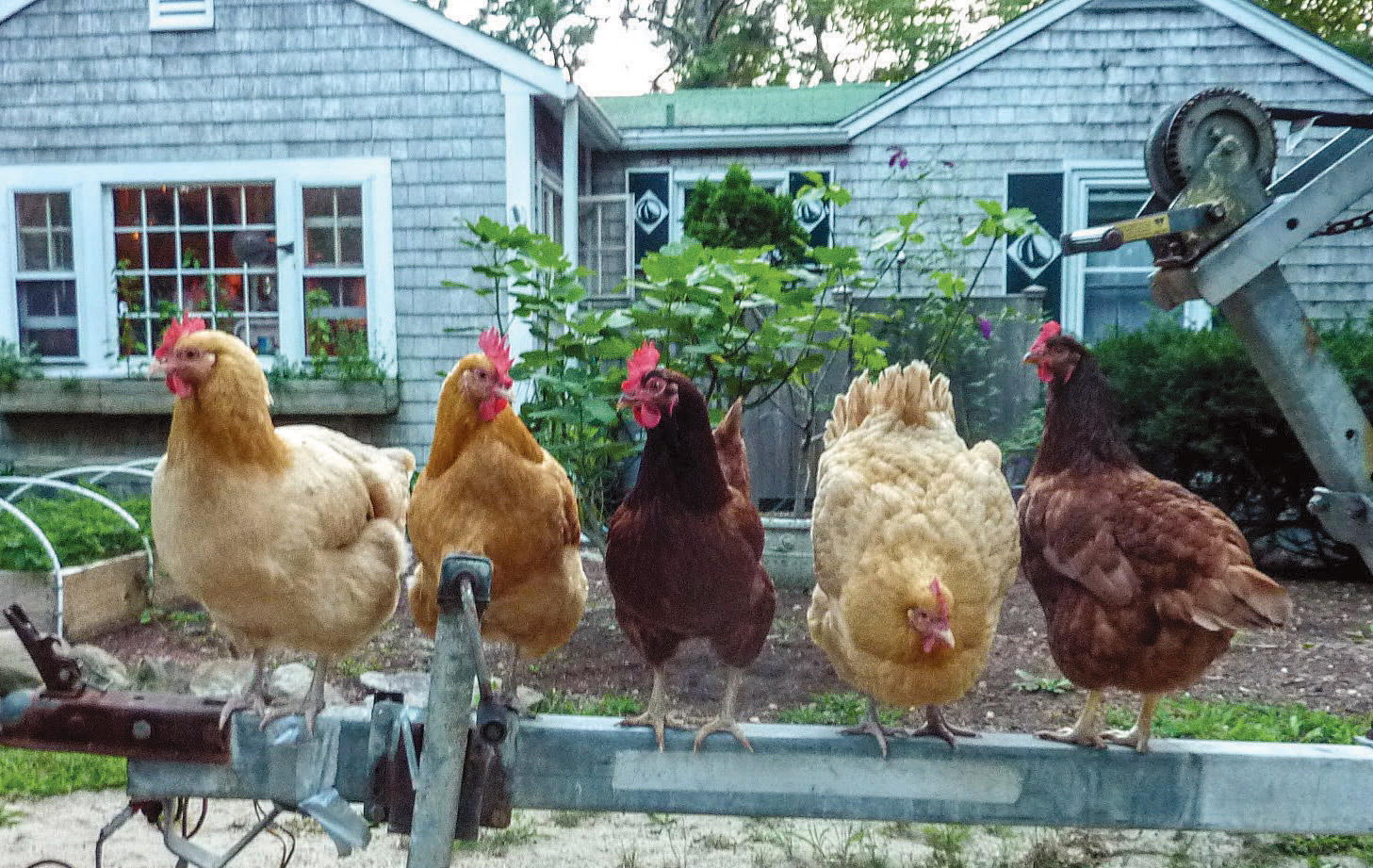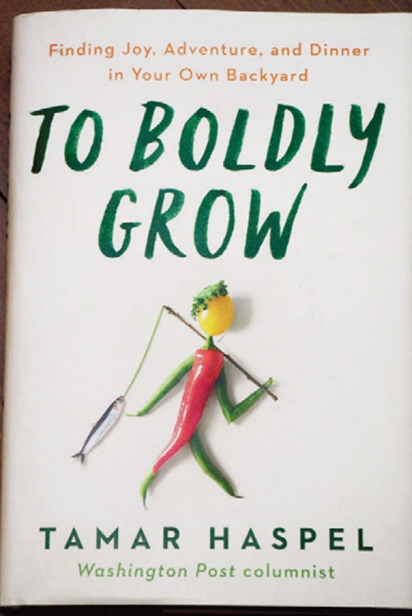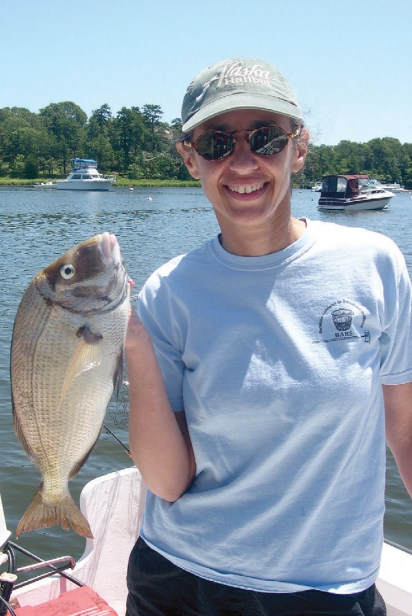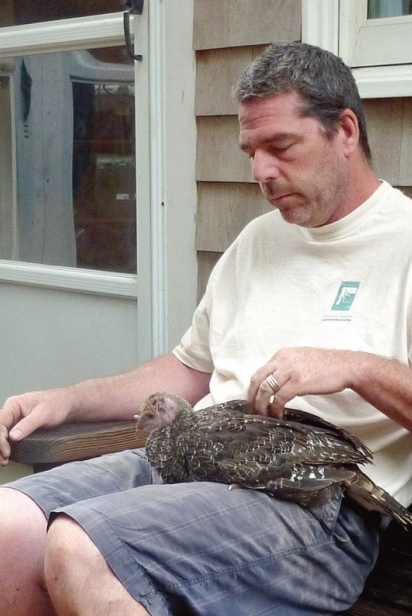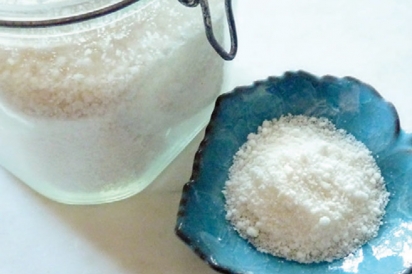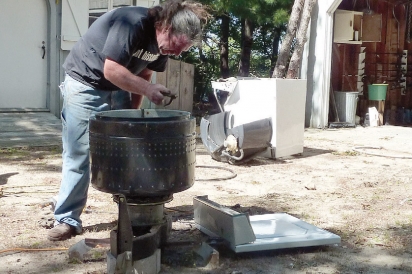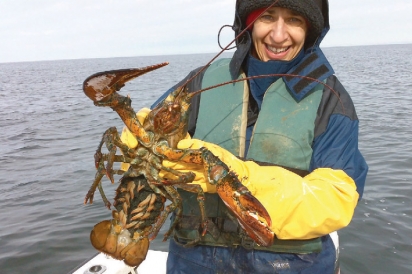To Boldly Grow: Finding Joy, Adventure, and Dinner in your Own Backyard
Decamping from the upper west side of Manhattan to a pond-side cottage on Cape Cod doesn’t seem like a terribly unique story arc. After all, how many thousands of people fled that city, and others like it, to escape their congested living spaces during the height of the pandemic. Where Tamar Haspel and husband Kevin Flaherty differ is that in 2008 they were running towards an idea of a new way of living and not simply fleeing from the old. Well, the internet was conspiring to derail both of their careers: She a professional writer and he a commodities trader on the floor of the New York Stock Exchange. Magazines were slashing writers’ pay as they moved content online, and fast fingers rather than loud voices were needed as commodities were being traded more and more digitally instead of in the trading pits. So, there was a sense of impending doom. Yet, they embraced the disruption and embarked on their next chapter together. One where they would endeavor to provide themselves with, as Haspel calls it, “firsthand food”. The pair aspired to grow, forage, raise, fish, or hunt their own food. This next phase was originally charted in Haspel’s blog, Starving Off the Land. It has now culminated in her new book, To Boldly Grow: Finding Joy, Adventure, and Dinner in Your Own Backyard.
The flavor and satisfaction of growing their own rooftop garden tomatoes back in New York sparked the interest in the self-proclaimed “non-doer” to roll up her sleeves and get doing. They made the move and became washashores in the fall of 2008. The seemingly innocuous question Tamar posed to Kevin on the following New Year’s Day got the inspirational ball rolling: could they go an entire year eating at least one item they get firsthand every day? Undeterred by Kevin’s less than enthusiastic initial response of “not a chance”, they dove in headfirst. The resulting account of trials, errors, learning and growing documented in To Boldly Grow is often laugh-out-loud funny but also has moments of poignancy that will catch in your throat.
Longtime readers of edible CAPE COD will recognize Haspel’s name from our pages. Tamar has written several pieces and, if you are familiar with her work, you’ll know just how witty and insightful she can be in her writing. Her ability to effectively communicate often complex food issues we face today in an engaging and understandable way garnered her a James Beard Foundation Award for her column in The Washington Post, Unearthed.
Now, she turns that inquisitive eye upon her and her husband’s quest that leads them to new discoveries, skills and friendships along the way. First off, we must get the terminology correct. What Haspel and Flaherty are doing is not “homesteading”. She explains, “There really wasn’t a term for the food and satisfaction you got by growing or fishing or hunting your own food. That’s why I started calling it “firsthand food”. She goes on to say, “Food that you get with your own two hands. Anyone who has grown a tomato or fished understands how different that food feels.” The idea of homesteading seems to be more of a solitary pursuit. A go-it-alone, off-the-grid type of existence that is the opposite of what Tamar and Kevin were trying to accomplish. “It’s not the volume of it. It’s the first-handedness of it. It’s not a lifestyle. It’s just a fun activity and you can start really small. Put a hydroponic herb garden on a windowsill. Put a tomato plant in a pot.” Tamar explains. “It’s not about upending your life. It’s just about reconnecting with something that feeds you.”
To Boldly Grow is about so much more than simply Haspel’s and Flaherty’s journey to feed themselves. There are life lessons to glean throughout. A central theme is one of experience leading to knowledge which, in turn, results in a stronger more confident self. “Do something you’ve never done before and take a flyer. That builds strength, and strength begets strength,” she points out. It certainly helps to turn to others around you for advice when “taking flyers”. The connections made in their pursuit of learning helped the pair to develop roots within their new home. Even if that soil, according to the United States Department of Agriculture’s Soil Survey, is the cursed Carver coarse sand running through their property that scuttled the visions of lush gardens from the start. “It’s about community. It’s meeting your neighbors,” Tamar declares. “It fosters a sense of ‘We’re all in this together.’” People from all walks of life and political views were invaluable to Haspel and Flaherty along the way. “You meet people different from you. The organic gardening club was one group of people, and hunter education was another group of people, and the fishing club was another group of people,” she claims. “We met interesting people in all those groups. It takes you out of your own little world, and I think that’s good for all of us.”
The journey is broken down into six parts: Gardening, Chickens (the gateway livestock, according to Tamar), Fishing, Foraging, Turkeys and Hunting. Haspel’s humor is evident from the start, with chapter titles such as Shitakes Happen, Insert Fungus Joke Here, and Pluck U, the latter being the story of Kevin crafting a poultry plucker out of an old washing machine. The resulting smoke and fingers of flame doomed the machine but led to an improved design of a smaller drum attached to a variable speed drill that’s still going strong. Tamar lovingly refers to these homemade types of machines as Rube Goldberg-like. An argument can be made that these are decidedly non-Goldbergian. Where the whole point of a Goldberg machine is to make a simple task as complex as possible, these creations of Kevin’s solve problems efficiently by repurposing materials at hand. Far more MacGyver than Goldberg. It’s the ingenuity to craft solutions for the challenges the couple would face that make the duo a formidable pair. Yet, it’s a pairing where each partner knows his or her limitations.
You don’t need to be a hunter/gatherer to come away with useful nuggets from this book. Tamar’s citing of the late evolutionary biologist Stephan Jay Gould’s “non-overlapping magisteria” as a tool for a well-functioning marriage is an inspired lesson. Gould coined the term to explain that science and religion didn’t need to be reconciled since each were outside the sphere of the other. The division of responsibilities in this household go far beyond who does the cooking and who pays the bills. Letting one spouse take the lead is vital for such projects as chicken coop construction. Non-overlapping magisteria can be a challenge because, as Tamar writes in the book, “They require one party or the other to butt out. Butting out is not my long suit.”
Growing vegetables, clamming, or raising oysters are all void of emotion when it comes time to harvest. When raising your own livestock, however, the end-of-life stage takes on a whole new, deeper meaning. Attachments can be made. Personalities, however projected they may be, can be noticed. As Tamar writes, “Kevin and I both take our livestock’s lives very seriously, and a good death is integral to our idea of responsible stewardship.” She precisely conveys the weight of the moment. The research has been done. All the preparations have been made for each step of the process that’ll take their turkeys from the pen to the cooler of ice. One can almost hear Kevin’s voice as he talks to the bird while crossing the yard to the inverted cone (the “Cone of Silence”), and when he says “thank you” as the blade slides across the bird’s neck. The type of reverence for the moment proves that Haspel and Flaherty will never, as she writes, “be cavalier or careless about taking an animal’s life.”
Tamar’s ability to own up to her misguided assumptions is both unflinching and hilarious. Erecting the pen for their turkeys is one such example. Building an enclosure with four-foot-high fencing for animals with the ability of flight, no matter how limited, was woefully inadequate. It also led to one of the great moments in the book where Tamar and Kevin were pitted against the turkeys in “Bedtime Wars”. That the humans ultimately came out on top is not surprising. The fact that the fight went four rounds raises the question of who really bested whom.
To Boldly Grow: Finding Joy, Adventure, and Dinner in Your Own Backyard can be a look into another way of life. It can also be a roadmap for the adventurous. This is not a cautionary tale. It’s a celebration that comes with the sense of accomplishment you feel when you get out of the chair, put down the computer and get doing — even for the confirmed non-doer. Above all, it is a charming tale of love, companionship and confidently marching into uncharted waters and coming out the other side stronger.


